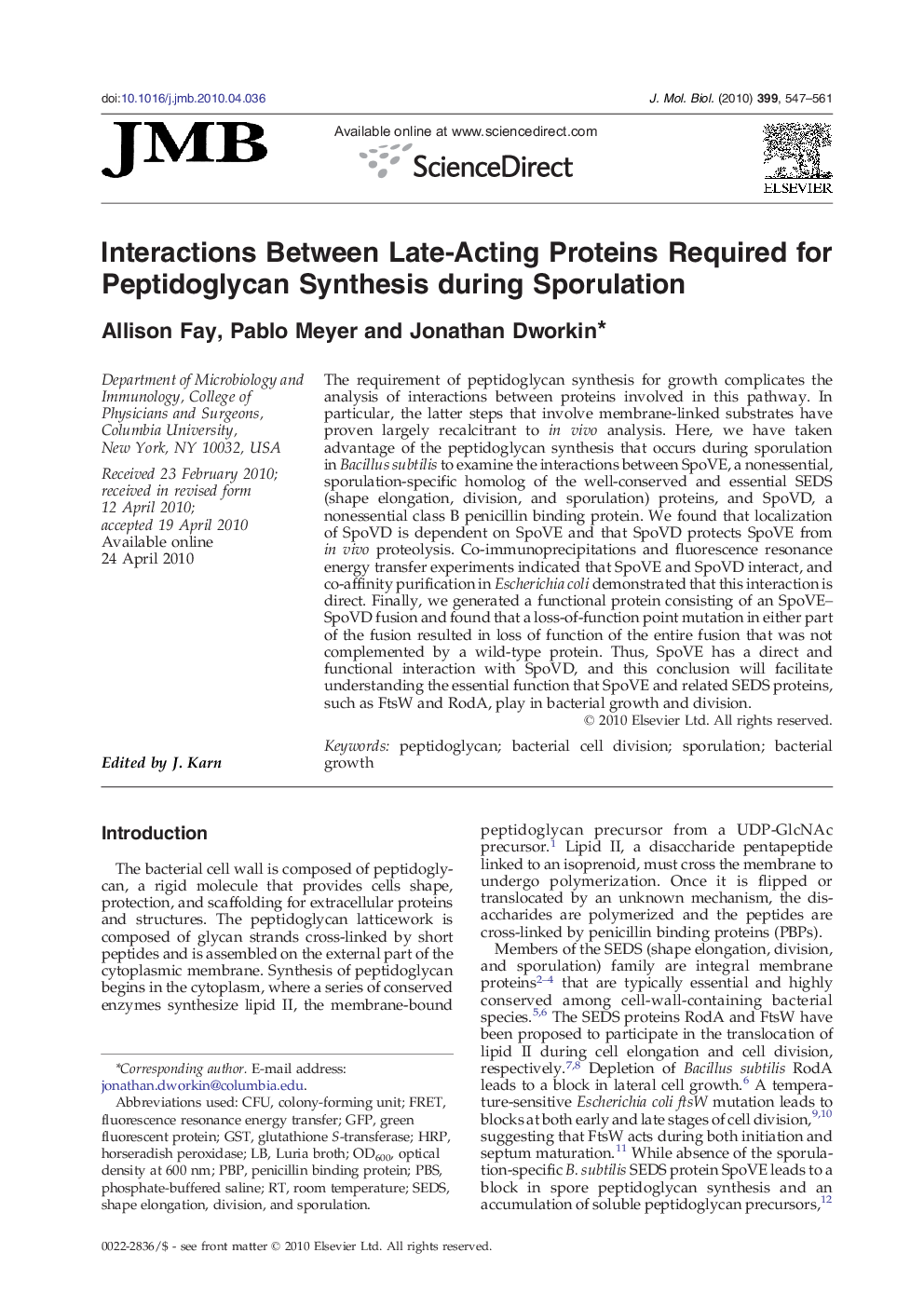| Article ID | Journal | Published Year | Pages | File Type |
|---|---|---|---|---|
| 2185800 | Journal of Molecular Biology | 2010 | 15 Pages |
The requirement of peptidoglycan synthesis for growth complicates the analysis of interactions between proteins involved in this pathway. In particular, the latter steps that involve membrane-linked substrates have proven largely recalcitrant to in vivo analysis. Here, we have taken advantage of the peptidoglycan synthesis that occurs during sporulation in Bacillus subtilis to examine the interactions between SpoVE, a nonessential, sporulation-specific homolog of the well-conserved and essential SEDS (shape elongation, division, and sporulation) proteins, and SpoVD, a nonessential class B penicillin binding protein. We found that localization of SpoVD is dependent on SpoVE and that SpoVD protects SpoVE from in vivo proteolysis. Co-immunoprecipitations and fluorescence resonance energy transfer experiments indicated that SpoVE and SpoVD interact, and co-affinity purification in Escherichia coli demonstrated that this interaction is direct. Finally, we generated a functional protein consisting of an SpoVE–SpoVD fusion and found that a loss-of-function point mutation in either part of the fusion resulted in loss of function of the entire fusion that was not complemented by a wild-type protein. Thus, SpoVE has a direct and functional interaction with SpoVD, and this conclusion will facilitate understanding the essential function that SpoVE and related SEDS proteins, such as FtsW and RodA, play in bacterial growth and division.
